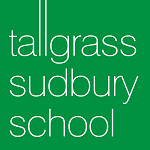The Sudbury model is a unique approach to education based on children's natural desire to learn. We believe that humans are designed to learn and do not need to be forced or coerced to do so. We’ve seen through experience that the most important things to young people’s growth are time, space, and resources within a caring community.
The Sudbury model was pioneered by the Sudbury Valley School, founded in 1968. Since then, dozens of Sudbury schools have emerged and thousands of students have graduated and gone on to become successful, happy adults. Students love attending Sudbury schools because of the freedom it gives them to explore their passions and interests, and the responsibility they're able to take for their community. Learn more about the pros and cons of Sudbury schools.
In a Sudbury school, students create their own curriculum and are free to spend their time however they choose. In practice, this means that most students spend most of their time doing things that are very different from conventional schools. Younger students often spend a lot of time playing. Older students often spend a lot of time talking or “hanging out.” These are essential ways of learning. You’ll also see a lot of other activities, from people building computers to playing in leaves to classes about history. We don’t judge how learning happens.
Every student who has attended a Sudbury school for an extended time has learned to read, write, do basic math, and pursued academic or vocational interests. Just as importantly, Sudbury students develop strong social and emotional skills that serve them for the rest of their lives. Many Sudbury graduates attend college, and many have become successful entrepreneurs.
The Sudbury model does not have strict roles for students and teachers. Any member of the school can be a student or a teacher at any given time. The role of staff members is to help students and support them, not to be an authority figure and tell students what to do or not do.
When children are free to manage their time and education, they develop confidence, independence, responsibility, and resourcefulness. And when they have the choice of what to learn and when, they keep their love of learning throughout their lives. While Sudbury graduates might not have take all of the classes traditional students do, their self-motivation and self-confidence allow them to excel in both higher education and their careers.



